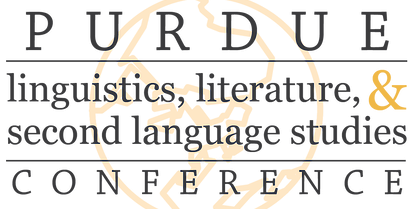Description
This research study aims to examine language change occurring in written discourse due to increase in the usage of emojis and the way emojis, in comparison to words, are performing communicative functions on social media platforms such as Facebook. The study focused on Pakistani Facebook users. For the study, Facebook is one of the most authentic social media platforms because 71.75 % (Internet Word Stat) of Pakistani internet users use Facebook which is the highest statistics among all social media applications. In order to investigate the recent language change and communicative functions performed by emojis, we utilized Speech act theory as it strives to investigate that by uttering something a speaker is indeed performing a social action, thus named as “Speech act”. Searle’s (1979) model of Illocutionary act in Speech act theory will particularly be used for the study. In addition to that, Dresner & Herring (2010) state that that smileys/ emojis function as illocutionary force, this theory will be applied to strengthen the argument. Moreover, for the collection of data, Discourse Completion Task/Test were used to collect elicit responses from the participants of focused groups. These focused groups contained students and faculty members from NUML and AIR Universities. The study concluded that, indeed, there is an arousing change in the written communication because younger generation uses emojis as compared to the aged people. The new forms of digital written communication (Facebook) has an immense amount of emojis instead of words for expression of their emotions. Emojis play vital role in conveying the “expressive” speech act in written communication and use of words is becoming lesser. They are pragmatically as competent as the words in the in communication, they fill the gap of facial expressions in the written mode of communication.
Start Date
9-29-2019 11:30 AM
Recommended Citation
Kazmi, Alienna; Rana, Arooj; Anjum, Uzma; and Khan, Madiha, ""A Picture is Worth a Thousand Words, and so is an Emojis 🙂" Emojisfication of Language: A Pragmatic Analysis of Facebook Discourse" (2019). Purdue Linguistics, Literature, and Second Language Studies Conference. 3.
https://docs.lib.purdue.edu/plcc/2019/papers/3
Included in
American Studies Commons, Classics Commons, Comparative Literature Commons, Digital Humanities Commons, English Language and Literature Commons, Feminist, Gender, and Sexuality Studies Commons, Medieval Studies Commons, Modern Languages Commons, Modern Literature Commons, Other Languages, Societies, and Cultures Commons
"A Picture is Worth a Thousand Words, and so is an Emojis 🙂" Emojisfication of Language: A Pragmatic Analysis of Facebook Discourse
This research study aims to examine language change occurring in written discourse due to increase in the usage of emojis and the way emojis, in comparison to words, are performing communicative functions on social media platforms such as Facebook. The study focused on Pakistani Facebook users. For the study, Facebook is one of the most authentic social media platforms because 71.75 % (Internet Word Stat) of Pakistani internet users use Facebook which is the highest statistics among all social media applications. In order to investigate the recent language change and communicative functions performed by emojis, we utilized Speech act theory as it strives to investigate that by uttering something a speaker is indeed performing a social action, thus named as “Speech act”. Searle’s (1979) model of Illocutionary act in Speech act theory will particularly be used for the study. In addition to that, Dresner & Herring (2010) state that that smileys/ emojis function as illocutionary force, this theory will be applied to strengthen the argument. Moreover, for the collection of data, Discourse Completion Task/Test were used to collect elicit responses from the participants of focused groups. These focused groups contained students and faculty members from NUML and AIR Universities. The study concluded that, indeed, there is an arousing change in the written communication because younger generation uses emojis as compared to the aged people. The new forms of digital written communication (Facebook) has an immense amount of emojis instead of words for expression of their emotions. Emojis play vital role in conveying the “expressive” speech act in written communication and use of words is becoming lesser. They are pragmatically as competent as the words in the in communication, they fill the gap of facial expressions in the written mode of communication.


